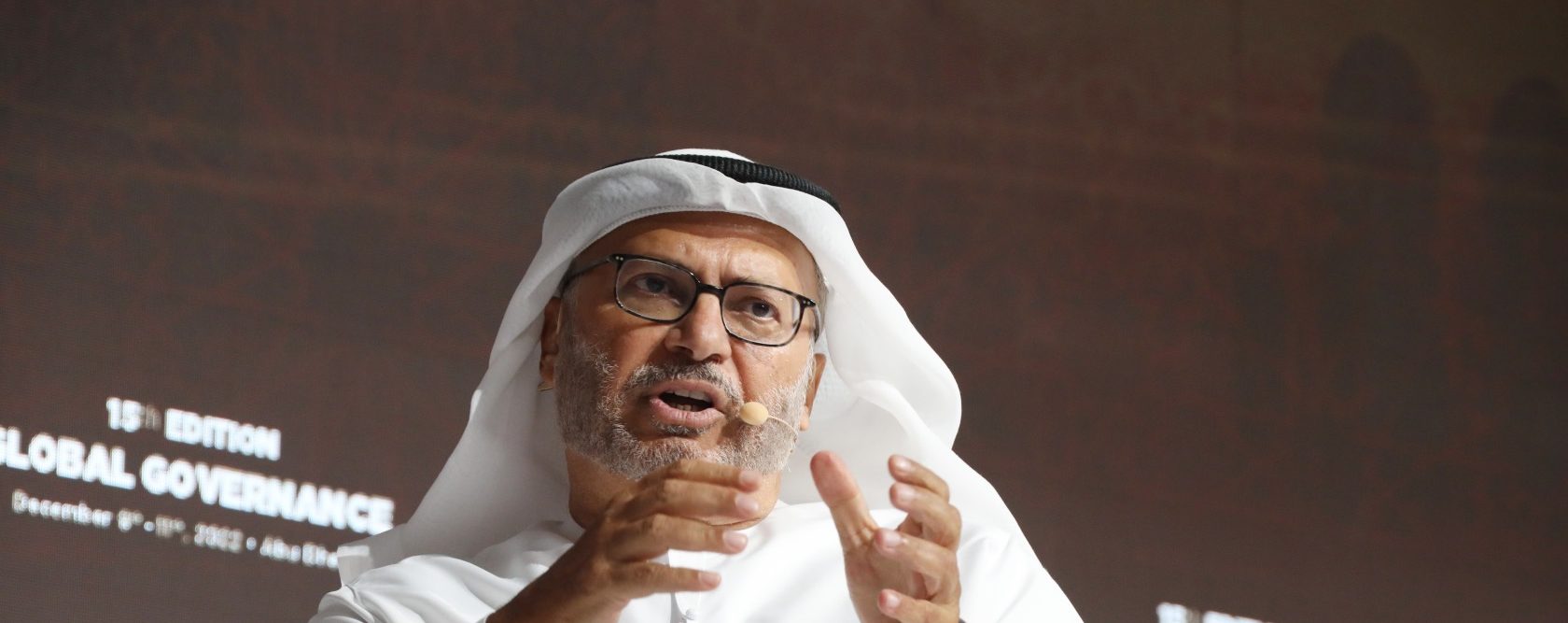Envoyé spécial du président de la République pour l’IMEC, le corridor économique Inde-Moyen-Orient-Europe. Il a été nommé par Emmanuel Macron fin novembre 2023. Auparavant, M. Mestrallet a été Président exécutif de l’Agence française de développement culturel, patrimonial et touristique d’AlUla basée en Arabie Saoudite, en coopération avec le Royaume de 2018 à 2023. Ancien capitaine d’industrie après avoir été pendant plus de 21 ans Président-Directeur général de GDF SUEZ (aujourd’hui ENGIE ; CAC 40) après la fusion entre SUEZ et Gaz de France en juillet 2008, Gérard Mestrallet est une figure majeure du secteur privé en France. Il demeure Président d’honneur de SUEZ et d’ENGIE et a été co-président de la Carbon Pricing Leadership Coalition (CPLC). Il a occupé diverses fonctions à la Direction générale du Trésor et au sein du Cabinet du Ministre de l’Économie et des Finances (J. Delors) au début de sa carrière, avant de rejoindre la Compagnie Financière de SUEZ en 1984. M. Mestrallet est diplômé de l’Ecole Polytechnique (X 1968), de l’Ecole nationale de l’aviation civile (IAC 1971) et de l’ENA (1978 promotion Pierre Mendès France).
Karim Wissa
Directeur général de la chambre de Commerce et d’Industrie française en Égypte. Élève des pères jésuites au Caire, Karim Wissa a poursuivi ses études au Caire (Universite Américaine) et son DEA de l’Université d’Oxford en Grande Bretagne. En 1989, Karim Wissa passe le concours des Affaires étrangères et intègre le ministère égyptien des Affaires étrangeres. Il représente son pays auprès des Nations Unies à New York (1994-1998), ensuite à Paris à la Chancellerie (2001-2005), et de nouveau à Paris comme chef du poste d’expansion économique (2006-2011). Entre-temps, à l’administration centrale au Caire, il est conseiller de trois ministres différents jusqu’à devenir directeur adjoint du ministre en 2012. La même année, par décret du Président de la République française, il est nommé Chevalier de la Légion d’Honneur. Nommé ambassadeur, il représente son pays comme administrateur à la Banque mondiale à Washington entre 2013 et 2016. En 2017, il rejoint le cabinet Gide, Nouel et Loyrette et ouvre le bureau du cabinet au Caire en 2018. En 2017, il enseigne à l’École supérieure de Sciences commerciales appliquées (ESLSCA) au Caire dans le programme MBA. En 2022, Il est nommé membre du Conseil de surveillance de l’ESLSCA. En Janvier 2021, il rejoint la Chambre de commerce et d’industrie française en Égypte comme directeur général. En juin 2021, par décret du Président de la République française, il est élevé au rang d’Officier de la Légion d’Honneur.
How can Christians help Palestine?
Lebanon’s Maronite patriarchate, in its monthly statement, expressed solidarity with the people of Palestine. The statement mentioned the atrocities that the people in Palestine and in southern Lebanon and the Bekaa are being subjected to and called for a peaceful resolution to the conflict.
The Maronite patriarchate has a very special position. It is an institution independent from any political body, yet it is very influential on the Lebanese political scene. Because the Lebanese patriarchate is a very important church in the East, it, along with other Christian churches in the East and the Arab world, can play an important role in resolving this conflict.
[…]
Read the article on the website of Arab News.
Philippe Chalmin : « Cent jours qui ont bouleversé la France… »
Cent jours après les élections européennes, le seul mérite de la « dissolution malvenue » qui les a suivies est d’« obliger les Français à ouvrir les yeux » sur quelques réalités qu’ils ont voulu trop longtemps ignorer, analyse Philippe Chalmin « Mais que de larmes » à venir, prévient-il.
Il y a maintenant près de cent jours que des élections européennes, dont au fond le résultat était parfaitement prévisible, ont déclenché, à partir de la dissolution de l’Assemblée nationale par Emmanuel Macron, un bouleversement dont la France risque de mettre longtemps à mesurer les conséquences. Il y eut donc quatre semaines de campagne électorale, suivies de trois semaines d’incertitude, puis de deux semaines des Jeux Olympiques, rallongées encore de deux semaines de pause estivale… puis encore quelques semaines pour que la France retrouve un gouvernement sur lequel pèsera toutefois l’épée de Damoclès d’une censure parlementaire.
[…]
Lire l’article intégrale sur le site des Echos.
Iran Sent Short-Range Missiles to Russia, Western Officials Say
ARTICLE –
Iran Sent Short-Range Missiles to Russia, Western Officials Say
U.S. and European countries had warned of sanctions if Iran provided weapons that could be used against Ukraine. President Biden’s lame-duck status could hamper a response.
[…]
Read the full article written by Steven Erlanger on The New York Times.
Jean-Pierre Cabestan : « La Chine est en train de perdre de l’argent en Afrique »
Le mercredi 4 septembre, Xi Jinping a reçu 25 dirigeants de pays africains à l’occasion du banquet d’ouverture de la 9e édition du sommet Chine-Afrique, qui se déroule cette semaine à Pékin. L’objectif : penser l’avenir de la coopération sino-africaine. Interrogé par L’Express, Jean-Pierre Cabestan, chercheur à Asia Centre Paris, évoque les réticences chinoises à une hausse de l’aide financière.
Retrouvez l’entretien avec Jean-Pierre Cabestan sur le site de L’EXPRESS.
Olivier Roy
Professeur à l’Institut Universitaire Européen de Florence, où il a dirigé le projet ReligioWest au Centre Robert Schuman, et adjunct professor à la School of Transnational Governance de l’IUE. Agrégé de philosophie, diplômé de l’INALCO (persan), Olivier Roy est titulaire d’un doctorat de sciences politiques de l’IEP de Paris et d’une habilitation à diriger des thèses. Il a été consultant au Centre d’Analyse, de Prévision et de Stratégie du Ministère français des Affaires Étrangères de 1994 à 2009, et visiting professor à l’Université de Berkeley (Californie) en 2008-2009. Il est, entre autres, l’auteur de « L’Echec de l’Islam politique » (1992), « L’Islam mondialisé » (2002), « La Sainte Ignorance » (2008), « En quête de l’Orient perdu » (2014), « Le Djihad et la Mort » (2016), « L’Europe est-elle chrétienne ? » (2018) et « L’Aplatissement du monde » (2022).
Richard Haass: « Will the Democrats Win After Biden’s Withdrawal? »
US President Joe Biden’s decision to drop out of the 2024 presidential race has revived the Democrats’ chances of victory. Given the profound differences between the two parties, it is difficult to exaggerate just how much is at stake when Americans vote this November.
[…]
Read the entire article on Project Syndicate.
Away From the War in Gaza, Another Palestinian Economy Is Wrecked
ARTICLE –
Less than three years ago, Wassif Frahat spent $3 million to open a lavish, two-story restaurant, the Ali Baba. With an impressive, pillared entryway, polished stone floors, glittering chandeliers and colorful frescoes on the high ceilings, the restaurant was his commitment to a better future.
The Ali Baba, in Jenin, is just a few minutes’ drive from the Jalameh checkpoint, which in normal times allows Israeli Arab citizens entry to the West Bank. The atmosphere is Palestinian, and the shops, restaurants and services are significantly cheaper than in Israel. The crossing also allows Palestinians with valid entry permits to go to jobs in Israel.
But after Hamas invaded Israel from Gaza on Oct. 7, the checkpoint was closed. Israel withheld most tax revenue from the authorities in the West Bank, in an effort to weaken them and clamp down more broadly on Palestinians. The economy in the territory’s north collapsed, and the better future that Mr. Frahat expected now seems further away than ever.
The war that followed the invasion is devastating Gaza, but it is also impoverishing the West Bank, which has become a kind of second front in Israel’s battle against Palestinian militancy.
[…]
Read the full article written by Steven Erlanger on The New York Times.
Présidentielle au Rwanda: Paul Kagame obtient 99,15% des voix, selon des résultats partiels
Nouveau plébiscite pour le président rwandais Paul Kagame avec des résultats provisoires qui le créditent de plus 99% des suffrages lors de la présidentielle de lundi 15 juillet. Élections dont ont été écartés les opposants les plus critiques.
Selon ces résultats lus à la télévision nationale par la présidente de la commission électorale Oda Gasinzigwa, « le candidat du Front patriotique rwandais, Paul Kagame, a obtenu 99,15% des voix à l’élection présidentielle, le candidat du Parti Démocratique Vert du Rwanda, Frank Habineza, a obtenu 0,53%, le candidat indépendant Philippe Mpayimana a obtenu 0,32% ».
Après l’annonce des résultats provisoires par la commission électorale vers 22h, Paul Kagame a pris la parole en direct du QG de son parti, le Front Patriotique Rwandais (FPR), devant ses soutiens. « Je sais que tout le monde n’est pas présent ici ce soir, mais je voulais tous vous remercier un par un, pour avoir été à mes côtés jusqu’à la dernière minute, jusqu’à ce que ce soit tranché. Ces résultats sont clairs, il n’y a plus aucun doute maintenant. Est-ce que vous m’avez déjà vu perdre espoir ? Bien sûr que non. Jamais ! Que ce soit dans le passé… ou même à l’avenir ! C’est parce que je sais que j’ai votre soutien et que nous trouverons toujours des solutions ensemble. Quant à ce score de 99%, il est très impressionnant. Et même si j’étais élu à 100%… cela n’est pas qu’une question de chiffre, c’est le reflet de la confiance que vous me portez. Et c’est ça qui compte le plus pour moi. »
Pour ce scrutin, il était opposé aux mêmes adversaires que lors de la dernière présidentielle en 2017, le leader du seul parti d’opposition autorisé Frank Habineza et l’indépendant Philippe Mpayimana, face à qui il avait remporté 98,79% des voix. Des résultats provisoires complets sont attendus le 20 juillet, avant la proclamation des résultats définitifs le 27 juillet.
Dans un bureau de Kigali, où était présente notre envoyée spéciale, Liza Fabbian, un seul nom résonnait dans la salle lors du dépouillement : Paul Kagame. Le président sortant, écrase encore une fois ses opposants, triés sur le volet. Les principales figures de l’opposition, les voix les plus critiques, ont été disqualifiées en amont de l’élection.
« Le résultat, c’est comme s’il était déjà connu »
Pourtant, la jeune Sifa est allée voter avec fierté ce lundi, elle, qui n’a connu qu’un seul dirigeant à la tête de son pays : « J’étais très curieuse de participer à une élection. C’est pour ça que je me suis levée très tôt ce matin. Ça s’est très bien passé, il y a une forte participation. Et le résultat, eh bien, c’est comme s’il était déjà connu, puisque nous savons bien ce que nous voulons. »
Durant sa campagne, Paul Kagame s’est toujours montré confiant, présentant cette nouvelle élection comme une formalité… un plébiscite de son action à la tête du Rwanda. Un message bien reçu par Claude, interrogé à la sortie de son bureau de vote : « Je viens de passer et je rentre pour dire à ma dame et aux enfants de passer aussi. Parce que c’est une obligation, c’est aussi une responsabilité pour faire avancer la société. J’ai constaté qu’il y avait de l’engouement du côté du président sortant. Maintenant, on verra. »
Après une réforme constitutionnelle adoptée en 2015, Paul Kagame peut encore diriger le Rwanda pendant deux mandats de cinq ans, jusqu’en 2034.
Read the article on the website of RFI
https://www.rfi.fr/fr/afrique/20240716-pr%C3%A9sidentielle-au-rwanda-paul-kagame-en-t%C3%AAte-avec-99-15-des-voix-selon-des-r%C3%A9sultats-partiels
Macron’s pact with the devil
Emmanuel Macron’s deal with the far left may end up being far worse for France than if the National Rally had won the parliamentary elections.
Emmanuel Macron is self-confident and ambitious. His focus is not limited to leading France; he also aims to establish himself as the leader of Europe and a major global player. Ideologically, he is very adaptable – like a snake, he does not hesitate to change his skin. He has cunningly succeeded in gaining the label of “liberal,” even though his actions and beliefs do not match that moniker.
A European liberal believes in limited state involvement, a market economy, decentralization, balanced public finances and a high degree of individual responsibility. Mr. Macron’s policies, with his support for European centralization, central economic planning by the state, common European debt, and similar philosophies, are rather closer to socialism.
His adaptable tactics have allowed him to succeed personally and politically. However, a lack of performance and truthfulness has led to a loss of trust and has backfired on him.
Like many other European leaders, most of whom are weak and underperforming, he has championed a hypocritical “defense of democracy.” According to this idea, right-wing parties, created in response to the center’s shift toward socialism, are labeled anti-democratic and must be excluded. Voters, however, do not believe that this stance by itself ought to legitimize political rule.
In the European Parliament elections, President Macron’s party suffered a crushing defeat. Marine Le Pen’s National Rally, considered right-wing, emerged as the strongest party with nearly a third of the vote. President Macron, whose term ends in 2027, decided to test his luck. He dissolved the national parliament, where his party was the strongest, and called for new elections. This was a democratic response to the signal French voters had given.
French parliamentary elections have two rounds. A candidate needs a majority in their constituency. As there are many parties, only a few candidates succeed in the first round. The second round allows only the front-runners of the first round to compete.
In the first round, unsurprisingly, the National Rally garnered about a third of the vote. This is where President Macron’s pact with the devil began. He agreed with the left-wing New Popular Front alliance, whose strongest faction is on the extreme left, that they and his party would support each other. In constituencies where the left’s candidate was stronger than the one from President Macron’s party, the leftist would get the support, and vice versa.
Together with its parliamentary allies, the National Rally’s share of the vote in the second round increased to clearly more than a third. But the leftist plot worked. The socialist – and partially extreme – party won the most seats, even though it was only the second-largest vote-getter. President Macron’s party, despite being very weak, came in second place, and the actual winner – the National Rally – came in third. The biased media and political commentators across Europe lauded this result as a victory for democracy and even framed it as a defeat for the National Rally.
The National Rally is frequently labeled anti-European, which is somewhat misleading. Their platform is not anti-European but rather anti-centralist. And although there are some unpleasant characters in the party, it is no more radical than large parts of the New Popular Front, which now claims the right to form the government.
What was lauded as a success for democracy in Europe might actually be a dark day. Good luck, Mr. Macron.
Read the article on the website of GIS Reports
https://www.gisreportsonline.com/r/macron-france-democracy/
Jeffrey Lewis
Associé et membre du comité exécutif du cabinet d’avocats international Cleary Gottlieb, avec plus de 35 ans d’expérience en Amérique latine. Il exerce essentiellement dans le domaine de l’énergie et des ressources naturelles et a participé à de nombreuses transactions importantes en la matière. M. Lewis a été reconnu comme « l’un des meilleurs avocats en droit des sociétés » dans la région par Chambers, comme « Market Leader » par IFLR et comme « Hall of Fame » par The Legal 500. M. Lewis est titulaire d’un doctorat en droit de la Columbia Law School et d’une licence du Williams College.
Tania Sollogoub
Responsable de la recherche sur les pays émergents et la géopolitique à la Direction des Etudes Economiques du Groupe Crédit Agricole. Elle a dirigé le Master Finance et Stratégie de Sciences Po Paris, y enseigne l’économie et l’analyse des risques pays, et a été plusieurs fois jury à l’ENA. Elle a été experte pour la Commission Européenne et a participé au Club de Londres pour la restructuration de la dette russe. Elle a mené de nombreux travaux de recherche sur l’évaluation du risque géopolitique dans le secteur financier. Elle est également autrice et a publié six romans.
Jean Pisani-Ferry : « Finding a new French majority »
President Emmanuel Macron’s brand of radical centrism was meant to draw on good ideas from both sides of the political spectrum. Seven years later, the outcome of the general election this month indicates that, if anything, France is even more polarised than it was in 2017.
French President Emmanuel Macron was first elected in 2017 on a promise to end the often-artificial divisions between left and right. France had become tired of theatrical posturing between adversaries who overplayed their differences during electoral campaigns, only to end up, once in power, governing in fairly similar ways. Macron’s brand of radical centrism was meant to end the grandstanding, draw on good ideas from both sides of the political spectrum, and govern accordingly. It intended to turn the opposition between left and right into a historical relic.
[…]
Read the interview on Gulf Times.
Tomás Lanardonne
Avocat argentin spécialisé dans les transactions et la réglementation, il possède plus de 20 ans d’expérience en matière de litiges et d’arbitrages liés au pétrole et au gaz, aux énergies conventionnelles et renouvelables, à l’exploitation minière et aux ressources naturelles. Il a obtenu une maîtrise en droit et politique de l’énergie au Royaume-Uni (Université de Dundee) en tant que boursier Chevening. Il a fondé le premier et unique journal argentin sur le droit de l’énergie (RADEHM). Il est l’un des associés fondateurs de Martínez de Hoz & Rueda, le seul cabinet d’avocats argentin classé numéro un par Chambers & Partners (énergie : pétrole et gaz). Il a participé aux principaux projets énergétiques des 15 dernières années en Argentine (gazoduc Vaca Muerta, projet en amont d’huile de schiste Loma Campana, oléoduc Trasandino, gazoduc Pacifico, projet hydroélectrique Cerros Colorados).
The Most Incredible Election in French History
With many losers and very few winners, the French election has only added to the confusion, fragmentation, and paralysis that was already afflicting the country and clouding its economic prospects. The situation is unlike anything France has experienced in recent memory.
PARIS – By calling a snap parliamentary election in the wake of his party’s defeat in the June European Parliament election, French President Emmanuel Macron hoped to “clarify” the political situation for his own benefit. Clearly, he failed. The election produced no parliamentary majority, only a great deal more confusion. With many losers and very few winners, it is the most astonishing election in the country’s modern history.
[…]
Read the entire article written by Zaki Laïdi on Project Syndicate.
Netanyahu’s Congress speech may determine Biden’s fate
US President Joe Biden is facing unprecedented challenges. After a disastrous debate night, many are calling for him to end his reelection bid. His wife and son, however, are urging him to stay in the game and to fire his staff. Biden was cowed by Donald Trump in last month’s presidential debate. Despite the numerous calls for him to drop out of the race, he has decided to stay on, saying he will not squander three and a half years of good work because of one bad night. However, to win the race, he needs to prove he is capable. Hence, he cannot afford to be cowed by Israeli Prime Minister Benjamin Netanyahu, who will address Congress on July 24.
Although Trump did not provide any clear and convincing answers to any of the questions asked by the presenters, he managed to intimidate Biden. Trump knew very well how to take advantage of Biden, who stumbled several times during the debate. He even mocked him by saying he did not understand what he was saying. Trump said that Biden is like a “Palestinian,” using the word like a slur. He added that Biden was a “weak” Palestinian.
Both candidates are old. However, one came out from the debate as old and strong and the other as old and weak. Following the debate, media pressure started building on Biden to quit the race. However, it is late in the game. Historian Allan Lichtman, who has correctly predicted the winner of nine of the last 10 US presidential elections, said the debate will not be a deciding factor. He used the example of 1984, when Ronald Reagan was relatively old and performed terribly in the presidential debates, yet still won the election. On the other hand, Hillary Clinton, who did well in all her debates, lost to Trump in 2016. A New York Times/Siena poll was conducted after the debate. It found that 74 percent of voters perceived Biden as too old for the job. In order to mitigate the effects of the debate, Biden needs to prove he is effective and capable. He cannot afford to be cowed.
Netanyahu’s address to Congress will be risky for Biden. One has to remember how the Israeli PM insulted Barack Obama in 2015 and received a standing ovation in Congress. Biden cannot afford such a humiliation.
Biden will need to be better prepared for Netanyahu’s speech than he was for the debate with Trump. No one really knows what Netanyahu will say. However, an informed observer can guess. He wants to continue the war on Gaza as it is the only way to ensure his political survival. He also wants to expand Israel’s attacks on Lebanon.
Netanyahu has been very critical of Biden. He has said that it is “inconceivable” for the US to withhold weapons from Israel. Is he going to whine and complain about Biden in front of Congress and get the standing ovation he got for insulting Obama in 2015? This would be a fatal blow to Biden and the Democrats. If Biden wants a second term, he needs to make sure this does not happen.
Netanyahu’s visit has been approved — Biden cannot do anything about it. The only thing Biden can do is fend off its possible repercussions. To start with, he should stand firm and not allow a foreign leader to humiliate him on his own turf. The second thing he and his team should do is to start probing members of Congress to make sure Netanyahu will not get any support for continuing the war or for striking Lebanon. The Biden administration should detail to lawmakers the futility of the Netanyahu policy, which has been unable to clear and hold any area in Gaza. The staggering civilian toll should be highlighted.
Additionally, it should be explained to the members of Congress that a strike on Lebanon might mean a regional war. According to my contacts, Netanyahu is promising a “limited strike.” However, he does not know how his foe will reply. Will its response be limited? We surely do not know. Is there a guarantee that Iran will not become involved? If the Biden team clarifies these issues to Congress, he can at least garner the required support in order to not get humiliated by Netanyahu. Biden needs to make sure Congress will not side with Netanyahu against him.
The time prior to the visit is crucial for Biden. If Netanyahu manages to convince Congress that Biden does not know what he is doing, then he is finished as president. If Netanyahu succeeds in cowing Biden, then Trump will be president again.
Biden has to remember that people are judging him for what is happening in Gaza, they are not judging Trump. This is an advantage for the Republican candidate. Hence, Biden needs to show assertiveness. Already, most Democrats think the US is providing too much military aid to Israel, with 56 percent saying they would be less likely to vote for a president that supports continuing providing Tel Aviv with weapons. Biden can capitalize on this and take a firm stand. He also has a UN Security Council resolution he can bank on.
Biden has always positioned himself as a president who respects alliances and international institutions and agreements, contrary to his opponent. This is the time for Biden to prove that to the American public. Gaza has been a disadvantage for the Biden administration in the election season so far. However, this disadvantage could turn into an advantage if Biden plays it properly. This might be his chance to regain his prestige and perhaps get reelected.
Read the article on the website of Arab News
https://www.arabnews.com/node/2545246
A British foreign policy moment in the making
With plenty of cachet still left, the UK has an opportunity to play a leading western role on the world stage.
The UK stands to regain its role as a leading foreign policy player. Eight years since the Brexit vote and the internal politics that has consumed the UK since, the country has entered a new era. Beginnings often provide a sense of optimism, except for those who lose elections, but that optimism holds for only a short window of time. That limited time must be seized upon, and quickly.
UK Prime Minister Keir Starmer has shown he understands the need for swift movement in the first 72 hours in office.
With a new government in Downing Street and the beginning of a new chapter in the country, the UK has an opportunity to play a leading western role on the world stage. As a permanent member of the UN Security Council, a leading member of Nato, a nuclear power and having the sixth-largest national economy in the world by gross domestic product, in addition to the legacy of the British Empire and the soft power of British culture and heritage, its sources of influence are many.
The opportunity for the UK to be a leading western power is more pronounced as the US becomes ever more consumed by the bizarre election campaign across the Atlantic and France contends with its own political troubles. With both US President Joe Biden and French President Emmanuel Macron appearing increasingly as lame duck presidents, Mr Starmer can fill a void in representing western interests. Many around the world are aware of this opportunity and will be watching Mr Starmer closely.
Undoubtedly, his government will have immediate domestic concerns – from long NHS waiting times to a housing crisis – as its top priority. That means Foreign Secretary David Lammy should be given more autonomy to act on foreign affairs. Mr Lammy will have to forge ahead with policy development and relationship building – or rectifying. While the last foreign secretary, David Cameron, was often well-received globally, he represented a weak prime minister in Rishi Sunak, in addition to the fact that an upcoming electoral deadline meant that whoever he met or negotiated with knew he would only be in office for mere months.
Since 2010, the foreign policy portfolio changed hands nine times, with eight foreign secretaries over 14 turbulent years of Conservative rule before Mr Lammy took office. Often, the Foreign, Commonwealth and Development Office was a holding place for an ambitious Tory MP taking the role as a holding position before elbowing their way into 10 Downing Street.
The Foreign Office itself went through much tumult, when in 2020 Boris Johnson shut down the department dedicated to aid, the Department for International Development, DFID, and merged it with the Foreign and Commonwealth office, to become FCDO. The move created chaos for several months and a survey of civil service leaders found that just 7.5 per cent of respondents believed the creation of FCDO was a success.
While a popular position among many Conservatives, the elimination of DFID has eroded the UK’s influence in global development. Since 2021, UK spending on overseas aid has dropped to 0.5 per cent of gross national income, a reduction from the 0.7 per cent aid target that the UN has set and that the UK hit in 2013 and maintained until three years ago. The UK had been one of the few countries to adhere to the ambition of 0.7 per cent set since 1960. Only 15 countries have ever met the UN target. In 2021, Mr Sunak, as chancellor, published a statement linking overseas aid spending to the ratio of debt in the country, deciding that the 0.7 per cent would not be met, despite being mandated according to the International Development Act 2015. Mr Starmer could immediately reposition its role in the world by restoring the 0.7 per cent target.
To turn the fortunes of British foreign policy around and rebuild influence, particularly in rising centres of power like New Delhi, Abu Dhabi, Brasilia and beyond, Mr Starmer and his team will have to move quickly. Initial signs, with Mr Starmer calling UAE President Sheikh Mohamed, Palestinian President Mahmoud Abbas and South African President Cyril Ramaphosa, while Mr Lammy called UAE Foreign Minister Sheikh Abdullah on his first day on the job, are promising.
The last time Labour was in power, their foreign policy record got marred by the Iraq war of 2003 and disastrous mishandling of its aftermath. After the party’s dramatic loss of power in 2010, it went through a number of iterations including being led by the left-wing Jeremy Corbyn who is known for his sympathy with questionable armed groups and states such as Iran and Cuba. Today, Mr Starmer and Mr Lammy need to forge their own path – while keeping their constituents happy.
Of course, repairing ties with Europe is a top priority as has been clear this week, but Mr Starmer has already clarified he will not be seeking to open negotiations with the EU to return to the single market, or try to restore the UK’s membership.
In addition to restoring the UK’s reputation as a serious country, the new foreign secretary has four pressing issues to attend to – the war in Gaza and its multi-dimensional fall-out in the Middle East and beyond, the deep crisis in Sudan and ramifications in Africa, and the war in Ukraine that is facing the prospect of ever-increasing western divisions on its end game. The three wars, particularly Palestine and Ukraine, are pushing the so-called rules-based order to its absolute limits. And thus, the fourth issue is the need to bring the rules-based order back from the brink, while some argue the world has already crossed that Rubicon.
As the penholder at the UN Security Council for the “protection of civilians”, meaning it is responsible for discussions and resolution on the issue, the UK must find a way to bring back principles such as the “right to protect”, which no longer hold true. The UK is also the penholder at the UN for a number of other pressing files, including Afghanistan.
While complex issues such as climate change and restoring the “right to protect” are of major importance, the war in Gaza and its ramifications must be a priority. In addition to its devastating human toll, the possibility of it expanding beyond the Lebanon-Israel border increases as each day pass. How Iranian-backed groups, from Yemen to Iraq, respond if the war was to expand, will set the tone for the region for decades to come. While US, Qatari and Egyptian mediation efforts continue, the UK can come in with years of experience – some of it with bitter memories for many in the region, including the Balfour Declaration – and offer its good offices. Further, the UK has its own interests in the region, from protecting maritime security through to ensuring the safety of the millions of Britons living there.
The US has disillusioned many around the world, and in particular Arab and Muslim-majority countries with the position it has taken on the war. And while it took Mr Starmer four months to call for a ceasefire, his election manifesto pledges to recognise the State of Palestine. This would be a significant move but not enough on its own to resolve the decades-old conflict – and end the occupation of Palestine. Setting about a clear and serious path for peace in Palestine and Israel, and the wider region, is necessary.
The UK has an opportunity to come back from its Brexit-era isolationism to playing a role as a middle-sized country, as Mr Lammy likes to describe it. However, its influence, history and potential are much more than those of the average middle-sized country. It just needs a leadership that can think big and seize the opportunity.
Read the article on the website of The National
https://www.thenationalnews.com/opinion/comment/2024/07/08/a-british-foreign-policy-moment-in-the-making/
Is the China-Russia friendship facade set to crumble?
TOKYO — In their highly publicized meeting on Feb. 4, 2022, Chinese President Xi Jinping and Russian President Vladimir Putin orchestrated a display of unity and camaraderie, declaring that the friendship between the two countries has « no limits. »
Despite these outward demonstrations of solidarity, genuine trust remains elusive between China and Russia, whose shared history is marred by border conflicts stemming from ideological and territorial disputes. The tensions culminated in armed clashes in 1969. Yet this facade of friendship persists due to their shared goal of disrupting the U.S.-led global order.
[…]
Read the entire comment written by Hiroyuki Akita on NikkeiAsia.
‘A Little Scary’: Ukraine Tries to Stay Neutral in U.S. Political Dogfight
ARTICLE –
Ukraine, which depends on American military aid for its survival, has long tried to maintain bipartisan support in the United States. That has never been easy, but it is getting harder, especially with the increased possibility that Donald J. Trump, no great friend of Ukraine, will return to the White House.
Ukraine’s president, Volodymyr Zelensky, is asked in nearly every interview what a second Trump administration would mean for Ukraine. While Mr. Zelensky chooses his words carefully, sometimes the emotional weight of the assumption behind the question — that Mr. Trump could end American military assistance, allowing Russia to succeed in destroying the Ukrainian state — spills into view.
[…]
Read the full article written by Steven Erlanger on The New York Times.
Stéphane Michel
Directeur général de la branche Gas, Renewables & Power et membre du Comité Exécutif de TotalEnergies depuis mars 2021. En 2008, Stéphane Michel est nommé Joint Venture and Business Development Manager de Total E&P Qatar, puis en 2010 Directeur général de la filiale Total E&P Libye. En 2011, Stéphane Michel devient Directeur général de la filiale Total E&P Qatar puis le 1er avril 2014, Directeur Moyen-Orient / Afrique du Nord et membre du Comité de direction de la branche Exploration & Production. Après avoir occupé, de 2002 à 2004, le poste de Conseiller Technique en charge de l’énergie auprès du Ministre de l’Economie, des Finances et de l’Industrie, Stéphane Michel rejoint la Compagnie en 2005 au poste de Responsable du développement à la Direction Raffinage & Marketing – Asie Pacifique, basé à Singapour. Diplômé de l’Ecole Polytechnique (1994) et l’Ecole des Mines de Paris (1997), Stéphane Michel est ingénieur en chef du Corps des Mines.
Majdi Abed
Directeur pour les Affaires publiques internationales de la Compagnie TotalEnergies. Avant de rejoindre TotalEnergies en 2019, il a exercé différentes responsabilités au sein du ministère des Affaires étrangères. Il a notamment été Consul général à Dubaï, conseiller politique à la représentation française auprès de l’OTAN et n° 2 à l’ambassade de France au Qatar.
UAE Calls for Arab Coalition to Face Threats in Region
UAE’s Minister of State for Foreign Affairs Anwar Gargash stressed the need for a moderate Arab coalition to face the threats in the region. His speech was made during the Abu Dhabi Strategic Debate (ADSD), organized by Emirates Policy Centre.
Building a strong moderate Arab center to address common regional security challenges is already underway, he said, adding that « for this Arab-led approach to be successful, we must continue to develop our own capabilities. »
« It is critical that Saudi Arabia and Egypt play a leading role in helping to steer the region in a more positive direction. Their stability is so important for the future of the whole region, and it is also why we welcome the proposal for a Middle East Strategic Alliance – it will allow countries with moderate agendas to work closely with the United States, » Gargash stated.
He went on to say that the GCC would be an important part of this alliance.
“Iran has been a primary source of sectarianism in the region, » he added. « We believe that Iran is threatening the security of the region’s countries by supporting armed militias and its proxies, like Hizbollah in Lebanon and Houthis in Yemen in addition to its use of cyber attacks and carrying out acts of terror in the region and beyond, like those witnessed in Europe. »
The minister reaffirmed the UAE’s support for the US President Donald Trump’s policy toward Iran and his strategy to stand up to its aggressive and destabilizing conduct.
« Another pillar for stability is for the region’s countries to pursue good governance. Like other peoples of the world, the region’s people seek good health, education and job opportunities; they aspire for prosperity and in case youth in our region have not been promised their dreams will come true, they would opt for extremism, » he said.
Gargash continued: « It is now high time for Houthis to de-escalate the situation and start a fresh round of peace negotiations. The ball is now in their court and the international community has to contribute to reaching a peaceful solution to the conflict by getting the Houthis to the negotiating table and cut off military supplies and funding provided to them by Iran. »
Read the article on the website of Asharq Al-Awsat
https://english.aawsat.com/home/article/1459696/uae-calls-arab-coalition-face-threats-region?_wrapper_format=html&page=2
Political experts weigh in on the first presidential debate
Political scientists share their thoughts on the performances from the former and current presidents
ROCKFORD, Ill. (WIFR) – The first presidential debate of the 2024 election year captured the internet by storm. Many comments about President Joe Biden’s health, Former President Donald Trump’s golf skills and the banter held between the two were main topics on social media.
Whether watchers were tuning in for entertainment purposes or to stay up with the news, political scientists say the debate will affect the performance of both candidates in November.
“It’s definitely going to affect the way people view President Biden and Former President Trump,” said Rock Valley College Political Science professor Maureen Lowry. “We’ve had the benefit of seeing them both in office so I think Americans already have a handle on how they can perform in capacity as presidents.”
Americans and watchers across the world were in shock from the performance of Biden and Trump. Former Swedish Prime Minister Carl Bildt said on X, that the debate was, “Fairly disastrous. That’s the only way to sum it up.”
Rockford University political science professor Bob Evans shared that the debate made him feel as if there was no one worth voting for in this election.
“Nobody inspired me,” he said. “Nobody made me feel like ‘that’s the person I’m going to ring doorbells for and knock on doors and vote for.’ It was a turnoff.”
New sources such as CBS, AP News and PolitiFact fact-checked claims and statistics said by both Trump and Biden. Both suffered remorse for making false and misleading comments that put their legal stances at risk. Lowry suggests in addition to the news rules that were set in place for this debate, a real-time fact-checker should be present to hold candidates accountable for their statements.
“The public absolutely gets misled. You know, have a fact check in real-time, it absolutely can be done. There are real-time transcripts rolling and real-time reporters that say no, the accurate information is actually this and provides links to the evidence and the data and that’s a critical importance.”
Other websites that fact-checked the debate are CNN, The Guardian, BBC, ABC News and many other sources.
Lowry and Evans share they hope both candidates will be more prepared for the next presidential debate. They anticipate Independent candidate Robert F. Kennedy Jr. to be more viewed as a candidate after the debate on Thursday.
Both professors suggest potential voters remain up to date with current politics and stay informed on their candidate of choosing.
Read the article on the website of 23WIFR
https://www.wifr.com/2024/06/29/political-experts-weigh-first-presidential-debate/
More Sudanese ‘could die from starvation than bullets.’
Jun 26, 2024: Abdalla Hamdok, former prime minister of Sudan, has called for urgent action in the country, where more than 25 million face famine and hunger, nearly 10 million are internally displaced and there is “suffering beyond imagination”.
In an exclusive interview with The National, Mr Hamdok, chairman of the Co-ordination of Civilian Democratic Forces (Taqaddum), warned that “people could die from hunger and starvation more than from bullets”.
He also spoke about “so many battles all over the country” as the army and the paramilitary Rapid Support Forces wage war. He stressed that the fighting in El Fasher, the capital of North Darfur that has been under siege for weeks, represents a “catastrophe beyond imagination”, but he added that El Fasher cannot be seen in isolation from the rest of the country.
Mr Hamdok was in Oslo recently as part of discussions to mediate an end to the war in Sudan, where he spoke to The National about the need for a political solution in the country. He explained that “the Sudan crisis of today is not new; the first war in Sudan started in 1955, just before independence, and it continued in protracted wars”.
“Two million people died in the civil war, the genocide in Darfur [killed] over 300,000, according to estimates of the UN, many [died] in the Nuba Mountains and South Kordofan, to the point where nobody knows even how many died in that war, » he said. However, he believes the difference with the current conflict is that “it started in the centre and quickly engulfed the entire country”.
Mr Hamdok served as prime minister between 2019 and the end of 2021, taking office shortly after long-time president Omar Al Bashir was removed by the Sudanese armed forces (SAF) amid protests, and had been keen to see a civilian leadership take hold. He is adamant the current government in Sudan, led by Gen Abdel Fattah Al Burhan is not a legitimate one.
On October 25, 2021, Gen Al Burhan, who leads the armed forces, broke with a civilian-military coalition charged with transitioning Sudan to full civilian rule. Mr Hamdok described the move as a “coup” and went on to say that “there is no military path to victory by either side, whether it is SAF or RSF. And it is extremely important for this to be concluded through political dialogue that will address the root causes of the war: issues of marginalisation, underdevelopment and fixing the ills of the country which lasted for close to 70 years”.
The former prime minister spoke of the “paradox” of Sudan not having a permanent constitution since 1956. “We are ruled with temporary constitutions … close to 60 years of military rule messed up the country and we want to put an end to this … we’d like to see this war as the last one.”
However, with the armed forces and RSF waging war, with arms and external support fuelling the conflict, an end to the violence in incredibly difficult to get to. Mr Hamdok explained that “the only assured way of putting pressure [on the generals], besides the leverage that can be exercised on them by neighbours and by the international community, is by the Sudanese people themselves”. Mr Hamdok, with a coalition of civilian leaders, is calling for the “widest possible front against the war … if [it] managed to unite the civilian landscape and political space, civil society, people in all walks of life and affiliations against the war, the moment both sides realise that there is no hiding place, and enough is enough, let us cut our losses and stop this war today”.
Mr Hamdok says he is working to create this front under the banner of Taqaddum, a coalition formed in October 2023 to create pressure on the warring parties and develop civilian governance structure.
The first meeting was held in Addis Ababa and was followed by an “establishment conference” last month involving 600 participants. “We were pleasantly surprised … the majority came from grassroots organisations” and it led to the establishment of a “non-partisan taskforce” to continue working.
He aims to galvanise internal Sudanese communities and those in the diaspora, in addition to mobilising regional and global public opinion, against the war. “When we fought the dictator of Al Bashir for 30 years, the diaspora played an important role … there was a huge and rich solidarity campaign across the globe and we want to rekindle and bring that spirit back”. He stressed that Taqaddum is born out of a belief that “if we are not united, we are not going to get anywhere”.
While seeking to be the “largest alliance possible of political forces”, Mr Hamdok adds “we also do not claim that we are the only force in town, we are appealing to others and accepting them with open arms”. Some of those who attended the conference were armed groups such as the Sudan People’s Liberation Movement-North, led by Abdelaziz Al Hilou, which led to criticism from some civilian groups.
“It was the climax of the meeting, because SPLM-North is an armed group that has never worked directly on politics, » Mr Hamdok said, in response to the criticism. « Their presence in the meeting actually gave them an opportunity to be able to link to other groups, to talk to people whom they would never have been able to even shake hands with … that assisted in having an environment where a lot of ice melted because of just the meeting and shaking hands and ability also to engage and discuss differences and also discuss the different issues religion, state, citizenship issues of marginalisation because of whether it is ethnicity, race, culture, everything.”
He said his door is open to anyone willing to work for a political solution in the country. “We don’t want to put conditions, but we are saying anyone who agrees to a democratic dispensation, to civilian rule, and is against the war, is welcome.”
Mr Hamdok has also been criticised for meeting the head of the RSF, Gen Mohamed Dagalo, in Addis Ababa in January, especially as the RSF face allegations of war crimes, as are SAF. Mr Hamdok responded to the controversy around the meeting by explaining that he and Taqaddum leaders wrote to Gen Al Burhan and Gen Daglo last December to request a meeting.
“Hemedti [Gen Dagalo] responded, we met him early this year and we signed with him the Addis Declaration, which is a fantastic document, on how to stop the war, on the protection of civilians, and it has very broad principles of preserving the unity of the country, one army and all issues”.
But Gen Al Burhan did not respond to the invitation for talks. “In fact, when the meeting [with Gen Dagalo] concluded, Al Burhan contacted me saying, how can you meet with the rebels? I told him we wrote to you and we’re happy to meet you any time soon, » Mr Hamdok said. That meeting has not happened, in part because Gen Al Burhan has insisted on meeting in Port Sudan, but Mr Hamdok has refused, explaining: “Port Sudan is in a far corner of the country, if you were operating from the State House in Khartoum, I would come to see you tomorrow”.
Mr Hamdok’s preference is to meet outside Sudan, on neutral ground.
His message to Gen Al Burhan is: “Let us cut our losses. And let us stop the suffering of our people. You are a de facto government today, although not recognised by many people because of the coup, not only the war, and Sudan is still suspended by the African Union.” Mr Hamdok stressed that “the African Union suspends any country that has a government that has come to power in an unconstitutional takeover. And what Al Burhan did in 2021 was an unconstitutional takeover of power. And that’s why they’re suspended from the African Union … and from that time onwards, there is no legitimate government, with all its complications”.
As for the role of the Muslim Brotherhood in Sudan, Mr Hamdok said the group “ruled the country for over 30 years; they were well entrenched in the state institutions, but more so in the security apparatus, the army, police and intelligence”. His criticism of the Muslim Brotherhood was clear as he said: “You cannot talk about a democratic dispensation when one party controls the [security] sector, it is the recipe for disaster.”
In his eyes, a viable solution would be “to restructure this institution and dismantle the one-party state, in the interest of a nation-state”. Mr Hamdok is advocating a re-establishment of state institutions based on a national constitution. He explained that after the removal of Al Bashir, there was an effort to eliminate Islamist control of the state, in addition to recovering stolen assets “and that is probably one of the reasons why they fought and plotted the coup, because there was a check on their power whether in the military or economy”.
Sudan has suffered from external interference by powers near and far. Mr Hamdok stressed that “our interests as Sudanese can only be served by the region and the international community working towards stopping any intervention in our internal affairs” and added that “we do not want to see our country as a ground for proxy wars … we have no interest in fighting wars of others”.
Mr Hamdok called on regional and international powers “to help us create an environment for the civilian political process to address this, anything beyond this is counterproductive, it will not resolve the war”. He added that “no amount of weapons supplied by any side will help them win … there is no victory. The biggest question is what is victory on the corpse of your own people; this is senseless”.
Asked about foreign interference in Sudan, Mr Hamdok said “the new element in the Sudanese conflict is the Iranian factor, the Houthis are supported by them and the proximity from the Red Sea to Port Sudan” is playing a role. Iran had strong ties with Al Bashir. Mr Hamdok said Iran’s involvement in Sudan stopped “for a while” after Al Bashir was toppled, but “they have re-established that relationship with the war”.
He went on to say that, with Iranian influence in the east of the Red Sea through the Houthi rebels in Yemen, “I guess they wanted to establish a base in the west. This is part of their strategy in the entire region. They have affiliates all over, from Iraq to Syria and Hezbollah, all this seems like a circle. So I guess that probably is the motive for them to be present in Sudan, and maybe an entry point to the continent”.
Saudi Arabia and the US mediated talks in Jeddah in an effort to bring an end to the war in Sudan. « We were very hopeful, they started on the right track but very quickly they stopped and we are not getting anywhere, » Mr Hamdok said. “One of the things probably which was not perceived right from the beginning was the issue of the structure of it. There were all good intentions by Saudi Arabia in the US, but it could have achieved better results if it was expanded a little bit by having, for instance, Egypt and the UAE present, which happened when they went to Manama.”
He went on to say that “for Jeddah to succeed, we need to revisit the actors, you need to have people who could have leverage on both sides”.
Mr Hamdok dismissed reports about the UAE having a nefarious role in Sudan, amid allegations of its support for the RSF. Responding to a question about the UAE’s role, he said “the UAE has always been supportive of Sudan, and there is a lot of links and ties in the history”. Mr Hamdok spoke at length of how the Sudanese community has grown in the UAE and sees the country as a “force for good in Sudan”. He added: “We look forward to not only the UAE but Saudi Arabia, Qatar, Kuwait, to help us rebuild Sudan when this war stops”.
He remarked that “the world has changed” and the only way to develop in the future will be for “productive investment, which creates a win-win situation for both sides”.
Mr Hamdok stressed the importance of countries paying attention to Sudan and working to end the war. He lauded the International Humanitarian meeting that took place in Paris last April organised by France, Germany and the EU. He said the meeting “came at the right time, as we Sudanese felt that our cause was neglected by the world … it was an excellent meeting”.
A number of states and organisations, including the African Union, League of Arab States, IGAD, Saudi Arabia, UAE, Egypt, US, Kenya, Norway and others committed to a ‘declaration of principles’ calling for an end to the war and urging “all foreign actors to cease providing armed support or materiel to the warring parties and to refrain from undertaking any action which would heighten tensions and fuel the conflict”.
Read the article on the website of Genocide Watch
https://www.genocidewatch.com/single-post/hamdok-warns-more-people-could-die-from-starvation-than-bullets-in-sudan
L’avenir de l’Europe dépend maintenant de la France
Berlin – Bien que le principe d’égalité des 27 États membres de l’Union européenne soit inscrit dans les traités, il existe en réalité d’énormes différences entre eux. Les deux plus grands d’entre eux et les plus importants du point de vue économique, l’Allemagne et la France, sont également deux des membres fondateurs de l’UE.
Read the entire article on the website of Project Syndicate
https://www.project-syndicate.org/commentary/france-far-right-government-could-do-lasting-damage-to-european-project-by-joschka-fischer-2024-06/french
Aiman Ezzat
Directeur général du groupe Capgemini depuis le 20 mai 2020. Depuis son entrée en fonction, M. Ezzat a dirigé l’intégration d’Altran et renforcé la position de Capgemini en tant qu’organisation responsable de premier plan, s’engageant notamment à devenir une entreprise nette zéro d’ici 2040. Avec plus de 25 ans d’expérience chez Capgemini, il a développé une connaissance approfondie des principales activités du Groupe et a travaillé dans de nombreux pays, notamment au Royaume-Uni et aux États-Unis, où il a vécu pendant plus de 15 ans. Durant son mandat de directeur général délégué (de 2018 à 2020) et avant cela de directeur financier, de 2012 à 2018, M. Ezzat a renforcé à la fois la position du Groupe en tant que leader mondial et sa résilience financière. M. Ezzat a une double formation en génie chimique et en gestion. Il est titulaire d’un MBA de l’Anderson School of Management de l’UCLA. Il siège également au conseil d’administration d’Air Liquide et est membre du Business Council et de la Table ronde européenne de l’industrie.
Sarah Al-Amiri : UAE Space Agency launches National Space Academy to develop national cadres
DUBAI, 15th November, 2023 (WAM) — The UAE Space Agency has announced the launch of the National Space Academy, with the support of the National Space Fund, on the sidelines of the Dubai Airshow.
The Academy aligns with the UAE Space Agency’s long-term vision and strategic goals to promote sustainability of the national space programmes and foster human resource development.
The Academy aimed at enhancing young Emiratis’ expertise in space science and technology, adhering to the most rigorous international standards. By equipping these individuals with world-class knowledge and skills, the Academy seeks to empower them to make significant contributions to the thriving success of the UAE Space Programme.
The National Space Academy is poised to revolutionise acquiring and enriching space-related knowledge among Emirati youth. This pioneering initiative provides a unique environment fostering innovation by seamlessly integrating cutting-edge academic research practices and hands-on practical experience.
The academy strives to expedite knowledge transfer to aspiring professionals in the space industry through various workshops and activities.
The Academy will contribute to enhancing entrepreneurship, a key pillar of the UAE’s economic renaissance and comprehensive development. By creating more job opportunities to meet the growing demand for specialised jobs in the knowledge economy, transforming ideas and innovations into successful projects, and promoting innovation and competitiveness, the academy will contribute to supporting the UAE government’s objectives of growing a knowledge-based economy.
Sarah Al Amiri, Minister of State for Public Education and Advanced Technology, Chairwoman of the UAE Space Agency, said, “The AED3 billion National Space Fund was established to support the country’s space sector. It works under the umbrella of the UAE Space Agency towards finding solutions to finance and facilitate the development of space activities and the development of the UAE space sector.
« Emirati youth are our main force and drive in the comprehensive development renaissance, and they are the future leaders for achieving sustainability in the UAE’s space sector. By developing their skills through the National Space Academy, they can acquire the knowledge and skills necessary to work in the space industry to be pioneers in this field. Through this, we can achieve our ambitions for the future and utilise our skills and capabilities in space exploration and development.”
Al Amiri added, “The academy will reinforce the commitment to achieving scientific progress and sustainable development in our society, in addition to offering a unique model in converting theoretical knowledge to practical experiences, to qualify graduates to contribute to the national space sector effectively.”
Législatives anticipées : Anne-Laure Delatte et Jean Pisani-Ferry et les programmes économiques
Anne-Laure Delatte, économiste, chercheuse au CNRS, professeure associée à l’Université Paris Dauphine PSL et Jean Pisani-Ferry, économiste, professeur à Sciences Po, ancien président de France Stratégie, analysent les programmes économiques des principales forces politiques en vue des législatives.
Ecoutez l’interview sur la chaîne YouTube de FranceInter
«La préparation aux pandémies est dans l’avantage de tous les régimes politiques»
Les 194 membres de l’Organisation mondiale de la santé (OMS) ont prolongé d’un an les négociations en vue d’un traité international pour lutter contre les pandémies. Alors que la menace d’une nouvelle pandémie augmente, les tensions internationales ne facilitent pas la signature d’un nouvel accord.
«La prochaine pandémie n’est qu’une question de temps», a alerté le directeur de l’OMS, Tedros Adhanom Ghebreyesus, au terme de l’Assemblée mondiale de la santé, le 1er juin. Quatre ans après le Covid-19 qui a paralysé les économies du monde entier et fait 7 millions de morts, les 194 pays membres de l’OMS peinent toujours à s’entendre sur un accord mondial pour prévenir et endiguer les futures pandémies.
Début juin, face à l’absence d’un consensus dans les délais impartis, l’Organisation mondiale de la santé (OMS), basée à Genève, a décidé de prolonger les négociations d’un an. Des points de frictions persistent, notamment sur la propriété intellectuelle, le partage d’informations sur les agents pathogènes et l’accès équitable aux vaccins et autres équipements médicaux.
La pandémie n’a pas seulement révélé la fragilité d’un monde globalisé, mal préparé face à un tel défi, mais elle a aussi mis en lumière des inégalités entre pays riches et pauvres. Les premiers pays à avoir eu accès aux vaccins étaient ceux qui les produisaient, comme l’Europe, les Etats-Unis, la Chine et la Russie. En 2023, seul un tiers des personnes vivant en Afrique avait reçu une vaccination complète, contre près de 70% en Amérique du Nord, en Amérique du Sud et en Asie.
Une course contre la montre
Si les négociations piétinent, le temps, lui, presse. La menace d’une prochaine pandémie est réelle, et elle augmente, alertent les experts. Depuis fin mars, le virus de la grippe aviaire H5N1, surveillé de près par l’OMS, a infecté pour la première fois des vaches laitières aux États-Unis. Ces contaminations inédites interrogent sur la possible transmission du virus aux humains.
«La souche H5N1 n’est pas nouvelle; elle a plus de 25 ans, tempère Antoine Flahault, directeur de l’Institut de santé globale à l’université de Genève et invité de Géopolitis. On sait qu’elle peut aussi atteindre l’homme et être extrêmement virulente». Depuis 2003, plus de 900 cas chez les humains ont été dénombrés par l’OMS – la moitié sont décédés peu de temps après l’infection.
«Le virus ne se transmet pour l’instant pas d’homme à homme, mais entre oiseaux, précise le médecin épidémiologiste. A présent, des bovins sont atteints en Amérique du Nord, et même leur lait est contaminé. Des chats, et probablement des humains, peuvent être contaminés par ce lait (non-pasteurisé, ndlr.).»
A ce jour, la cause derrière l’infection des vaches d’élevage est peu comprise. Certains suspectent une transmission par les mamelles au moment de la traite, tandis qu’une récente étude pointe vers une potentielle contamination par les voies respiratoires. «C’est difficile de savoir s’il y a une transmission entre mammifères. Si c’est le cas, le virus aura franchi un pas de plus vers une contamination redoutée entre humains», ajoute-t-il.
Le 11 juin, l’Union européenne a annoncé avoir commandé 665’000 doses d’un vaccin prévenant la transmission de la grippe aviaire à l’humain, alors que plusieurs nouvelles infections humaines ont été rapportées aux Etats-Unis, au Mexique et en Australie. La grippe aviaire n’est toutefois pas le seul virus surveillé par l’OMS, qui a dressé une liste des pathogènes préoccupants et qui se prépare même à une maladie inconnue, baptisée «maladie X». «C’était le cas de la pandémie du coronavirus, commente Antoine Flahault. Il pourrait y avoir l’émergence d’un virus qu’on ne connaît pas, qui n’a jamais infecté l’homme auparavant et qui, par mutation, devient transmissible entre hommes.»
Une seule santé, une seule planète
La transmission de maladies infectieuses d’animaux aux humains – nommées zoonoses – préoccupe. D’après une étude dans Nature (2022), le réchauffement climatique, la déforestation et le commerce d’espèces protégées exacerbent ce risque. Dans la forêt tropicale du Yucatán, au Mexique, dans une zone où les contacts potentiels entre animaux et humains sont plus probables en raison d’une forte déforestation, des scientifiques de l’Université nationale autonome du Mexique traquent des agents infectieux susceptibles de provoquer de nouvelles pandémies.
Une recherche qui fait écho aux objectifs du programme «une seule santé» (One Health), lancé par l’OMS, qui vise à prédire les futures pandémies, en prenant en compte les interactions entre l’environnement, les hommes et les animaux.
«70% des nouvelles maladies infectieuses viennent des animaux, souligne Antoine Flahault. On a qu’une seule santé: celle de la planète, des hommes et des animaux. Si on néglige une des trois, on aura des retours de boomerang.» Pour lui, il est nécessaire de former des scientifiques et des praticiens, notamment des médecins et vétérinaires. «Il faut qu’on puisse travailler ensemble, converger nos points de vue, et parfois les confronter, pour faire avancer les dispositifs et surtout pour mieux prévenir des grandes pandémies comme le Covid-19», avance-t-il.
Dans un climat international tendu
L’élaboration d’un accord international est un processus réputé long et compliqué, d’autant plus que le contexte international tendu met le multilatéralisme à rude épreuve, avec l’émergence des guerres en Ukraine et au Proche-Orient. Pour Antoine Flahault, les tensions géopolitiques actuelles ne devraient pas freiner les discussions, à l’instar de l’éradication de la variole, initiée pendant la guerre froide
«En 1958, en pleine guerre froide, l’URSS a proposé un projet de résolution pour éradiquer la variole à l’Assemblée mondiale de la santé, rappelle Antoine Flahault. Vingt ans plus tard, en 1979 à Genève, l’OMS déclarait l’éradication totale de ce virus qui a tué 300 millions de personnes au 20ème siècle.»
Et d’ajouter: «La préparation aux pandémies est dans l’avantage de tout le monde, quels que soient les régimes et opinions politiques. Cela transcende toutes les cultures.»
Les négociations se poursuivront d’ici 2025. Entre-temps, des avancées ont vu le jour au bout du lac avec l’adoption de plusieurs amendements au Règlement sanitaire international (RSI), un cadre juridiquement contraignant pour répondre aux urgences de santé publique. La notion d’une «urgence pandémique», pouvant être déclarée par le Directeur général de l’OMS, a ainsi été approuvée début juin.
Read the article on the website of Swiss Info
https://www.swissinfo.ch/fre/geneve-internationale/la-pr%C3%A9paration-aux-pand%C3%A9mies-est-dans-lavantage-de-tous-les-r%C3%A9gimes-politiques/80671752


























NEW YORK – US President Joe Biden’s decision to step aside as the Democratic Party’s presidential candidate this fall has transformed American politics. It caps a historic July in the United States, one defined by far-reaching Supreme Court decisions and the attempted assassination of former President Donald Trump on the eve of the Republican Convention.
Biden’s decision, urged by many Democratic Party officials and donors and favored by many voters, was the right choice. In the wake of a debate widely viewed as a debacle for Biden, his age had made it all but impossible for him to make the case to the American people that he deserved another four years – and was making it impossible for him to make the case that Trump did not.
It is too soon to write about Biden’s legacy, if for no other reason than his presidency still has some six months left. But by stepping aside he has gone a long way toward eliminating the potential critique that by staying in the race he paved the way for a successor who shared little of his commitment to American democracy and the country’s role in the world. Indeed, had Trump defeated Biden in November, as polls were forecasting, this would have largely overshadowed Biden’s accomplishments as president.